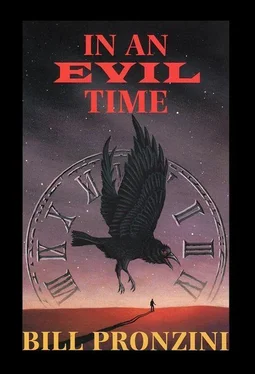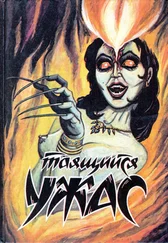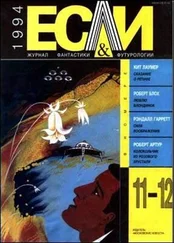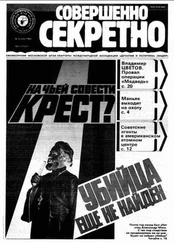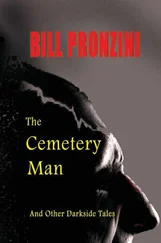“Well?”
“If he’s dead... why? What happened to him?”
“The details aren’t important—”
“They are if he was murdered.”
“By a stranger? What does it matter who?”
“Suppose it was Eric?” she said.
His first call was to April Sayers. She’d already seen the piece in the Chronicle , had just gotten off the phone with her Utah relatives. Angela and Kenny were fine. Extra precautions were being taken, just in case. And all for nothing, Hollis thought as he rang off. He could imagine how upset his daughter must be over this. Consoling himself that it was only temporary, that the end result justified the additional anxiety, was cold and bitter comfort.
Second call: Eric. It was early enough so that he was still in his room and his line was free. Hollis would have preferred to talk to him alone, but Cassie insisted on picking up the extension. Her fear that Eric was responsible had rocked him. He should have seen it coming, but he hadn’t. He’d managed to allay the fear somewhat, enough to keep her from saying anything to Eric; she let him do most of the talking. Eric’s reaction may have reassured her, but it bothered Hollis. No hint of surprise that Rakubian had been reported missing, not found murdered in his home. Concern about his sister and nephew, cautious optimism — the same outward pose as Hollis’s. But was he handling it too well? Not feeling as much guilt and remorse as he should, perhaps thinking that what he’d done was wholly justified?
The third and last call was to the Hall of Justice in San Francisco, Missing Persons division. The inspector in charge of the Rakubian case, he was told, was Napoleon Macatee, but he wasn’t at his desk. Hollis left a message, supplying both home and office numbers. Now he was on record as having made first contact.
Inspector Macatee called him at Mannix & Hollis shortly before noon. Polite, soft-spoken, voice inflections that indicated he was African American. No, Hollis said, he had no information about David Rakubian’s disappearance. He’d seen the news story, he was concerned because of the potential danger to his daughter.
“You know he assaulted her in public a few weeks ago,” he said, “and we had to get a restraining order against him. He’s been getting more and more irrational, calling at all hours, showing up here, making threats.”
“His office staff paint a different picture of the man,” Macatee said.
“Sure they do. They only saw his public face. We have tapes of all his calls, his letters, everything. If you’d like to go through the...”
“Pretty sure I’ll want to do that. Mr. Hollis, I understand you went to the man’s offices last Thursday morning. Mind telling me why?”
“The obvious reason. One last futile attempt to get him to stop harassing my family. It was a waste of time, like talking to a piece of stone. As far as he’s concerned, he isn’t guilty of anything except trying to get his wife back. He’s obsessed with her. He’s not only a control freak and an abuser, he’s a dangerous psychotic.”
“Psychotic’s a pretty strong word.”
“Not for Rakubian. The last time he showed up in Los Alegres, he caught my daughter alone and threatened to kill her and my grandson both if she didn’t go back to him.”
Macatee digested that before he asked, “Anyone else there at the time?”
“Just Kenny, my grandson. But my daughter wouldn’t make up a story like that. She doesn’t lie and she doesn’t exaggerate. She said he meant it, and I believe her.”
“Did you know about this threat when you went to talk to him on Thursday?”
“I knew and I called him on it. He denied it, of course.”
“You make any threats against him in return?”
“No. I lost my head the first time I went there — I guess you know about that — and I was determined not to let it happen again. But I came close to losing it, I’ll admit that.”
“Angry, frustrated... that how you felt when you left?”
“Wouldn’t you be if it was your family, Inspector? I should have known better than to try to reason with a man like him. But no matter how I felt and still feel, I didn’t have anything to do with his disappearance.”
“See him again anytime since Thursday?”
“No.”
“Talk to him?”
“No.”
“Your daughter have any contact with him?”
“No. She was home with us all weekend.”
“She at home now?”
“Not since Monday morning,” Hollis said, and went on to explain about Angela’s decision to relocate, the arrangements she’d made. “I can’t tell you exactly where she is. My wife and I don’t know ourselves.”
“But you can get in touch with her.”
“Yes. She already knows that Rakubian is missing. What worries my wife and me is that he found out she was relocating and dropped out of sight to hunt for her.”
“How would he’ve found out?”
“I can’t answer that. I sure as hell didn’t say anything to tip him off. But he’s a shrewd bugger and he has plenty of contacts. For all we know he hired somebody to watch her. I doubt anyone could’ve followed her when she left on Monday, but how can we be absolutely sure?”
“I’ll want to talk to your daughter,” Macatee said. “Appreciate it if you’d get word to her, have her contact me as soon as possible.”
“You won’t try to force her to tell you her whereabouts? Or to come back here?”
“Not without good cause.”
“All right. I’ll e-mail your name and number to her.”
Macatee asked a few more questions, none of them, as far as Hollis could tell, motivated by anything other than routine. He said he and Angela would both be in touch and rang off.
End of round one. A draw, he thought — the best he could have hoped for.
Friday Afternoon
Stan Otaki called with the results of his PSA blood test. “The good news,” he said, “is that the cancer hasn’t spread outside your prostate.”
He clung to that for a few seconds. Then he asked, “What’s the bad news?”
“The growth rate is definitely accelerating. My advice, like it or not, is a ‘first cut’ to remove and test the lymph nodes surrounding the gland.”
“Surgery. I won’t do it, Stan.”
Otaki made a breathy, rumbling noise. “So be it. Then I suggest we begin radiation therapy right away.”
“No argument there.”
“I’ll make the arrangements.”
“And meanwhile,” Hollis said, “what should I do? Start putting my affairs in order, just in case?”
“Don’t make light of this, Jack.”
“I’m not. Just trying to keep a smiley face.”
“A positive attitude is important. We’ve discussed that.”
“I haven’t forgotten. My attitude’s positive,” he said, and he meant it. “I’m going to beat this thing, one way or another.”
“That’s the spirit.”
After all, he thought, this malignancy can’t be any worse than the one I buried on Saturday night.
Friday Evening
Cassie sat quiet when he finished telling her, no show of emotion of any kind. He thought her eyes were moist, but he couldn’t be sure in the lamplit living room.
After a time he said, “You knew, didn’t you.”
“That it’s been getting worse? Yes.”
“Why didn’t you say anything?”
“You’ve had enough on your mind without me nagging you about the cancer. I knew you’d see Stan eventually — talk to me when you were ready. You’re stubborn and foolish sometimes, but you’ve always been a fighter. You’d never give in to a life-threatening disease.”
“No way.”
“So it’s radiation, then.”
He nodded. “You won’t try to talk me into having surgery?”
Читать дальше
